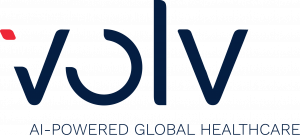Volv's AI tool inClude helps identify the target patient population among both diagnosed patients and importantly, undiagnosed people living with disease.
Not only would this help to reduce risk in clinical development by providing greater understanding of the disease pathway, but it would also enable companies to differentiate their product.”
LAUSANNE, VAUD, SWITZERLAND, July 7, 2022 /EINPresswire.com/ -- Rare disease drug developers face significant challenges during clinical development, from finding patients to conduct their trials to addressing heterogeneity in the target patient population. To help rare disease innovators establish a better clinical development strategy, Volv is conducting an in-depth Workshop at the World Orphan Drug Congress (WODC) USA, which is being held in Boston from 11th to 13th July 2022.— Christopher Rudolf, Founder and CEO of Volv Global SA
Volv has developed dedicated AI tools to help developers achieve their goals along the development continuum. The company’s most recent AI tool, inClude, helps sponsors identify the target patient population among both diagnosed and undiagnosed rare disease patients, establish clinical outcome assessments that characterise earlier disease states and can be considered as novel endpoints in clinical trials, and expand the range of biomarkers to advance biological understanding of the disease.
The Workshop, which will be held at 15:00 on 11th July, will consider AI’s potential for revolutionising how companies operate in the rare disease space. Areas that will be explored include: novel approaches to obtaining new insights, uncovering new information from claims data, ways to better define target patient populations and novel endpoints, and gaining new insights into the disease earlier in its progression.
“If companies can find rare disease patients earlier, the symptoms those patients are experiencing might be different, which could help them develop a different and better target product profile and new outcome assessments with potentially differentiating endpoints,” says Christopher Rudolf, Founder and CEO of Volv Global SA. “Not only would this help to reduce risk in clinical development by providing greater understanding of the disease pathway, but it would also enable companies to differentiate their product.”
During the Workshop, participants will split into discussion groups to explore three important questions: How can identification of target patient populations be improved, and why is this needed? What new insights about the patient experience can inform new outcome assessment and potentially differentiating endpoints? Which methods can help to improve phenotyping of patients and lead to the identification of new biomarker candidates?
“The issues we are exploring with inClude tie in with FDA guidance on natural history studies to support the development of safe and effective products for rare diseases, since having deep and broad knowledge of a disease can better inform the design and conduct of clinical trials and establish clinically meaningful endpoints,” Christopher Rudolf says.
The Workshop is titled “Putting AI to work for rare diseases: How can AI inform better Clinical Development strategy, design, and patient stratification?” In addition, Christopher Rudolf will also hold a WODC Presentation at 16:15 on 12th July, titled “Deploying AI in the real world to find rare disease patients: challenges and opportunities.”
About Volv
Volv Global SA is a leader in applying AI to healthcare with a focus on rare or difficult-to-diagnose diseases. Volv’s leading AI methodology inTrigue uses machine learning to detect undiagnosed rare and orphan disease patients in population-scale data such as electronic health and claims records. Volv’s product inClude, enriches disease understanding with new insights, delivering increased value to healthcare providers, patients, and payers alike.
Christopher Rudolf, Founder & CEO
Volv Global SA
email us here
+41 79 552 79 11
Visit us on social media:
LinkedIn


